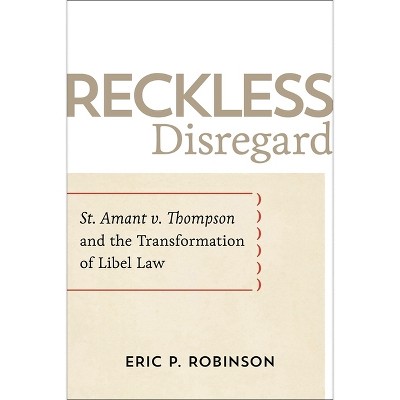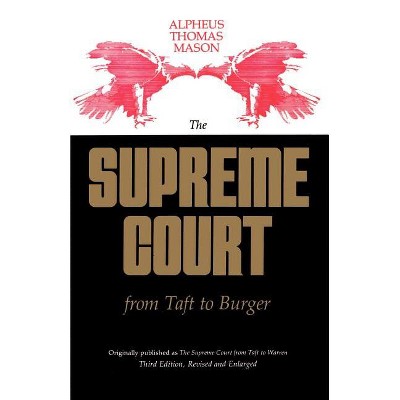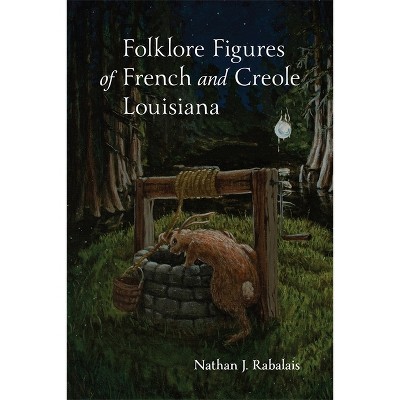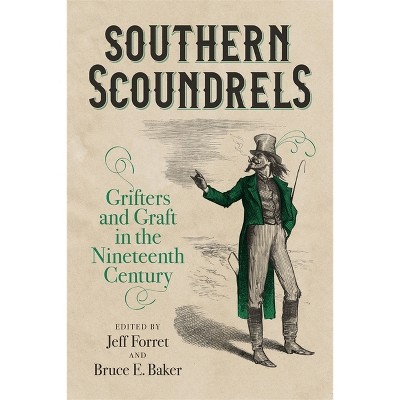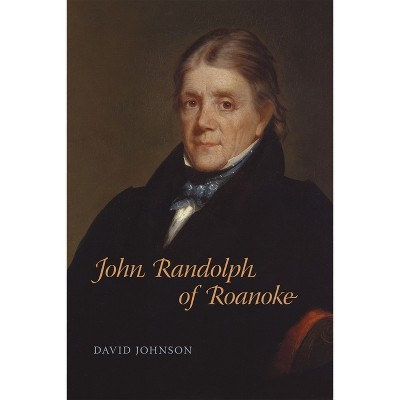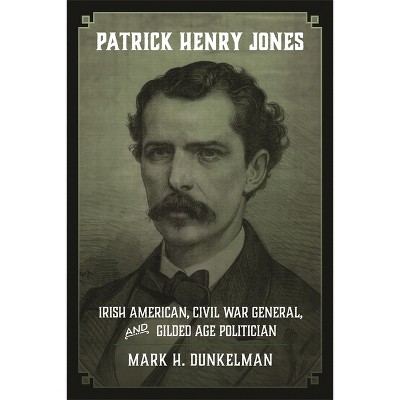Sponsored

Irreconcilable Founders - by David Johnson (Hardcover)
In Stock
Sponsored
About this item
Highlights
- Virginians dominate the early history of the United States, with Washington, Jefferson, Madison, Monroe, Patrick Henry, George Mason, George Wythe, and John Marshall figuring prominently in that narrative.
- About the Author: David Johnson graduated from the College of William & Mary and the University of Richmond School of Law.
- 258 Pages
- Freedom + Security / Law Enforcement, Legal History
Description
About the Book
"Virginians dominated the early history of the United States. While historians have written scores of books about Washington, Jefferson, Madison, Monroe, Patrick Henry, George Mason, George Wythe, and John Marshall, they have given Spencer Roane (1762-1822) comparatively scant attention. The lack of interest in Roane is remarkable since he was the philosophical leader of the Jeffersonians, architect of states' rights doctrine, legislator, essayist, and, for twenty-seven years, justice of the Virginia Supreme Court. He was the son-in-law of Patrick Henry, a confidant of Jefferson, founder of the Richmond Enquirer, and head of the "Richmond Junto." His opinions established judicial review of legislative acts ten years before Supreme Court Chief Justice John Marshall did the same in Marbury v. Madison, opened a narrow path for the emancipation of slaves, and brought down Virginia's state-sponsored church. Roane's descent into historical twilight is all the more curious given his fierce criticism - both from the bench and in the newspaper - of John Marshall's nationalistic decisions. Indeed, the debate between these two judges is perhaps the most comprehensive discussion of federalism outside of the arguments that raged over ratification of the U.S. Constitution. In "Irreconcilable Founders," David Johnson uses Roane's long-lasting conflict with John Marshall as ballast for the first-ever biography of this highly influential but forgotten justice and political theorist. According to him, Roane appears as an annoying gadfly in most studies of federalism during the early days of the republic mainly because his legal opinions gave way to those of Marshall. Equally to blame is the comparative inaccessibility of Roane's life: no single archive houses his papers and correspondence, no scholars have systematically reviewed his legal opinions, and no one has examined his essays as a whole. Bringing these and other disparate sources together for the first time, Johnson precisely limns Roane's career, personality, and philosophy. He also synthesizes the judge's wide-ranging jurisprudence and analyzes his predictions about the dangers of unchecked federal power and an activist Supreme Court. Many of Roane's views are echoed today with increasing frequency by conservative politicians and commentators, making an examination of his life and appraisal of the wisdom of his disregarded opinions all the more essential"--Book Synopsis
Virginians dominate the early history of the United States, with Washington, Jefferson, Madison, Monroe, Patrick Henry, George Mason, George Wythe, and John Marshall figuring prominently in that narrative. Fellow Virginian Spencer Roane (1762-1822), an influential jurist and political thinker, was in many ways their equal. Roane is nonetheless mostly absent in accounts of early America. The lack of interest in Roane is remarkable since he was the philosophical leader of the Jeffersonians, architect of states' rights doctrine, a legislator, essayist, and, for twenty-seven years, justice of the Virginia Supreme Court. He was the son-in-law of Henry, a confidant of Jefferson, founder of the influential Richmond Enquirer, and head of the "Richmond Junto."
Roane's opinions established judicial review of legislative acts ten years before Supreme Court Chief Justice Marshall did the same in Marbury v. Madison. Roane also brought down Virginia's state-sponsored church. His descent into historical twilight is even more curious given his fierce criticism--both from the bench and in the Richmond Enquirer--of Marshall's nationalistic decisions. Indeed, the debate between these two judges is perhaps the most comprehensive discussion of federalism outside of the arguments that raged over the ratification of the United States Constitution. In Irreconcilable Founders, David Johnson uses Roane's long-lasting conflict with Marshall as ballast for the first-ever biography of this highly influential but largely forgotten justice and political theorist. Because Roane's legal opinions gave way to those of Marshall, historians have tended to either dismiss him or cast him as little more than an annoying gadfly. Equally to blame for his obscurity is the comparative inaccessibility of Roane's life: no single archive houses his papers, no scholars have systematically reviewed his legal opinions, and no one has methodically examined his essays. Bringing these and other disparate sources together for the first time, Johnson precisely limns Roane's career, personality, and philosophy. He also synthesizes the judge's wide-ranging jurisprudence and analyzes his predictions about the dangers of unchecked federal power and an activist Supreme Court. Although contemporary jurists and politicians disregarded Roane's opinions, many in today's political and legal arenas are unknowingly echoing his views with increasing frequency, making this reappraisal of his life and reassessment of his opinions timely and relevant.Review Quotes
This is an excellent work, and one that the American constitutional historians have been awaiting for about 100 years. We all know about Marshall's disagreements with Roane, which were of fundamental significance, and we know all about Marshall, the person. But who was Spencer Roane? This biography gives a well-balanced understanding of who he was and what his constitutional ideas were--W. Hamilton Bryson, editor of "Virginia Law Books: Essays and Bibliographies"
We have reached a point in American history where the federal government wields a disproportionate influence over American life, and where the federal Supreme Court is the all-powerful voice interpreting the Constitution. In this splendid, lucid, and concise treatment of the life and jurisprudence of one of our great neglected state judges, Virginia's brilliant and irascible Spencer Roane--son-in-law to Patrick Henry and nemesis of Chief Justice John Marshall--David Johnson limns a competing tradition in American Constitutional thought that just might offer a crucial corrective to our current Constitutional quandaries.--Stephen B. Presser, author of "Law Professors: Three Centuries of Shaping American Law"
About the Author
David Johnson graduated from the College of William & Mary and the University of Richmond School of Law. He serves as a judge of the circuit court of Chesterfield County and is the author of John Randolph of Roanoke. He and his wife live in Midlothian, Virginia.Shipping details
Return details
Trending Non-Fiction






